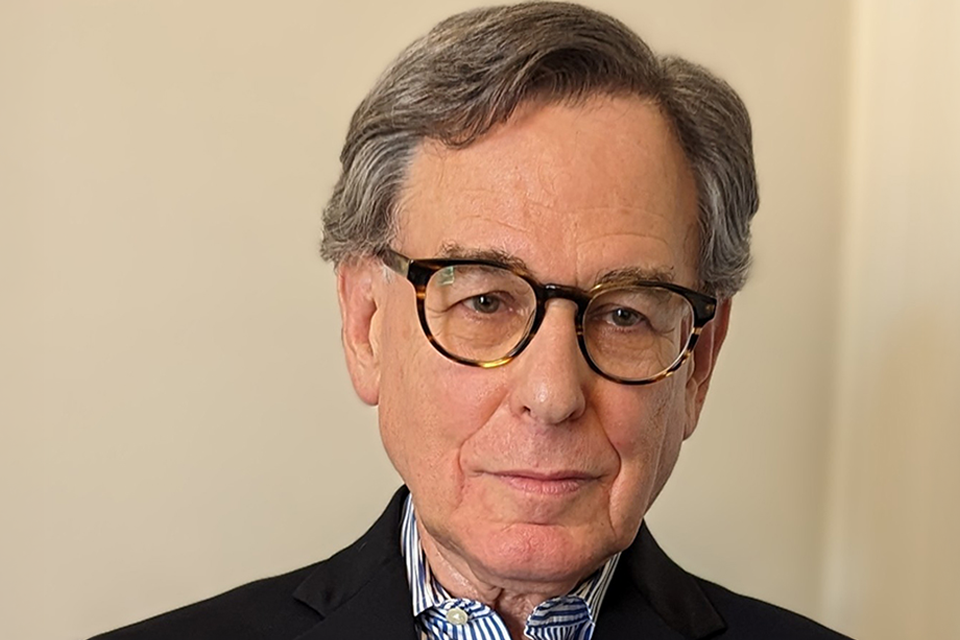Brandeis Alumni, Family and Friends
Alum and White House veteran reflects on second Trump term
August 8, 2025
His unique perspective drew about 500 alumni to a virtual event.

Sidney Blumenthal ‘69 has had a front-row seat to presidential power – first as a top advisor to President Bill Clinton and later as a presidential historian and political columnist for The Guardian. His expertise drew about 500 alumni to a recent virtual conversation that reflected on the first six months of President Donald Trump’s second term and what his presidency could mean for America’s future.
Blumenthal was joined by classmate Ira Shapiro ’69, a former U.S. trade negotiator and author of three books on the U.S. Senate. Professor Lucy Goodheart moderated the discussion.
Here are five key takeaways from their wide-ranging discussion.
The Republican Party is now the party of Trump
President Trump has dismissed values the Republican Party has prized for more than 170 years, such as personal responsibility and individual freedom. Instead, Trump prioritizes order, loyalty, and retribution.
“It’s the MAGA party—it’s Trump’s party now,” Blumenthal says, who is writing a multi-volume biography of Abraham Lincoln. “He has a completely different philosophy that he shares with Republican voters.”
Trump critics risk intimidation and retaliation. For example, GOP members of Congress concerned with Trump’s policies fear speaking out could lose them their seats.
Checks and balances are weaker but still present
In the aftermath of a Supreme Court decision last year that strengthened presidential immunity and power, Blumenthal worries Trump has far fewer restraints on implementing his agenda than during his first term.
Still, several guardrails to presidential power remain, including the media, state and federal courts, and Congress. Blumenthal, whose media experience includes being a staff writer for The Washington Post, New Yorker and New Republic, notes that lower courts are challenging many of the president’s most extreme policies, such as those on immigration.
“It’s a promising sign for democracy,” Blumenthal says.
Governing style puts retribution over policy
President Trump’s second term has been an outlier among presidential administrations in more ways than one. Most importantly, he is the first president to be more interested in retribution against political enemies than in governing.
That retribution has been directed at media like NPR, educational institutions like Harvard University, and Democratic states like California.
While other presidents have had defined political positions, Trump has “no interest” in policy. “We’ve simply never had a president like this,” says Blumenthal.
The Democrats can recover
With Congress and the presidency controlled by the GOP, the Democratic Party is struggling to respond to Trump, and both politicians and voters feel helpless.
Blumenthal, a Democrat, admits his party has practically no power in the current government.
However, parties can recover from heavy losses, “rising like a phoenix from the ashes,” he says. He cites the example of Democratic President Franklin D. Roosevelt, who was elected in 1932 just a few years after a massive GOP presidential victory. Democrats controlled the presidency for two decades after that.
“That doesn’t mean you don’t speak up or do anything, but you also need to take the long view,” he says. “Trump will not be on the ballot in 2028—events and realities will change.”
Tariffs could raise prices and halt growth
Many economists are puzzled that the negative economic effects they expected from the Trump Administration’s tariffs have failed to materialize so far.
However, Blumenthal believes the worst is yet to come: the tariffs are going to be felt in full by late summer and early fall, and could even result in stagflation—a combination of inflated prices and stagnant growth that the U.S. has not seen since the late 1970s.
All of those negative effects, including shortages and skyrocketing prices, will be self-inflicted by the administration. And they could result in a very angry public.
“The ultimate guardrail Trump will face is the consequences of his own actions, particularly in regard to the economy,” Blumenthal says.






